📚 Top 10 Books Every Developer Should Read
Table of Contents
A developer's journey is always upskilling to the latest tech stack and open-source projects.
Pick any software language or framework, and it's all about your efforts to master a skill. Mastering a skill and gaining experience is a journey that requires dedication, practice, and a structured approach.
Having the basics covered will give you confidence and experience. You could apply them at work and get appreciated by everyone.
Ten books are highly recommended for developers to read, covering various topics from programming to software engineering principles.
1. Clean code
A Handbook of Agile Software Craftsmanship" by Robert C. Martin is a seminal work in software engineering.
This book is a manifesto for writing code that is functional, readable, elegant, and maintainable. Martin outlines principles and practices to transform messy, convoluted code into a lucid and efficient masterpiece.
By emphasizing concepts like meaningful naming, code simplicity, and well-structured architecture, "Clean Code" empowers developers to create software that stands the test of time. It's an indispensable guide for any programmer striving for excellence and craftsmanship in their codebase, ultimately leading to more robust and sustainable software systems.
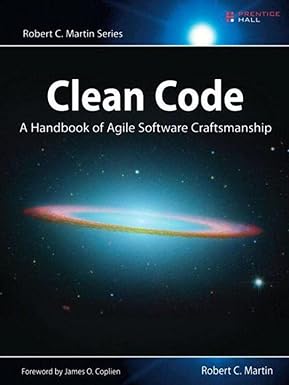
Clean Code
A handbook of Agile software craftsmanship. Noted software expert Robert C. Martin presents a revolutionary paradigm with Clean Code: A Handbook of Agile Software Craftsmanship.
2. The pragmatic Programmer
"The Pragmatic Programmer: Your Journey to Mastery" by Andrew Hunt and David Thomas is a quintessential guide for software developers seeking practical wisdom and timeless advice. Packed with actionable tips and techniques, this book covers various topics, from code organization to debugging and testing.
This book advocates for a pragmatic approach, emphasizing simplicity, clarity, and efficiency in coding practices. Readers learn how to write clean, maintainable code, manage complexity, and navigate the challenges of real-world projects. With insights on debugging, version control, and effective collaboration, this book equips programmers with essential skills to excel in their craft and become more efficient, adaptable, and proficient developers.
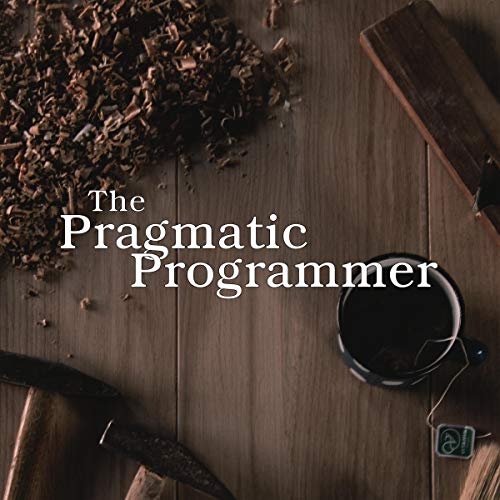
The Pragmatic Programmer
The Pragmatic Programmer is one of those rare tech audiobooks you’ll listen, re-listen, and listen to again over the years.
3. Refactoring: Improving the Design of Existing Code
This book is a cornerstone in the software engineering literature and advocates for a systematic approach to restructuring code without altering its external behavior.
It provides practical techniques for enhancing code quality, maintainability, and readability. Through numerous real-world examples and case studies, the book guides developers in recognizing and applying refactoring patterns. Addressing common code smells and design deficiencies enables programmers to evolve their codebases incrementally, resulting in more robust, adaptable, and efficient software systems.
This indispensable resource empowers developers to transform legacy code into well-organized, extensible, high-performing applications.
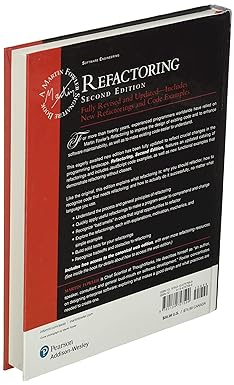
Refactoring: Improving the Design of Existing Code
For more than twenty years, experienced programmers worldwide have relied on Martin Fowler’s Refactoring to improve the design of existing code and to enhance software maintainability, as well as to make existing code easier to understand.
4. Structure and interpretation of computer program
"Structure and Interpretation of Computer Programs" is a seminal textbook by Harold Abelson and Gerald Jay Sussman, with Julie Sussman. Commonly referred to as SICP, it is a foundational work in computer science education. The book explores fundamental programming principles and computational thinking through Scheme, a dialect of Lisp. It emphasizes abstraction, recursion, and writing elegant, efficient code.
SICP doesn't just teach programming; it nurtures a deeper understanding of computation. It has influenced generations of programmers, providing them with a solid theoretical foundation transcending any specific programming language, making it an enduring classic in computer science literature.
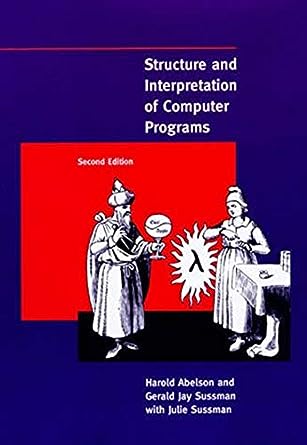
Structure and Interpretation of Computer Programs
The book contains new implementations of most of the major programming systems in the book, including the interpreters and compilers, and the authors have incorporated many small changes that reflect their experience teaching the course at MIT since the first edition was published.
5. Working effectively with legacy code
This book offers practical strategies and techniques to tame and improve existing, often problematic, code. Feathers introduces methods for safely refactoring legacy systems, enabling the introduction of modern practices without introducing bugs. With numerous real-world examples, it addresses common challenges like untested code, tight dependencies, and spaghetti code.
By emphasizing test-driven development and dependency-breaking techniques, the book equips developers with tools to confidently navigate and enhance legacy code, ensuring it remains maintainable, reliable, and adaptable for years.
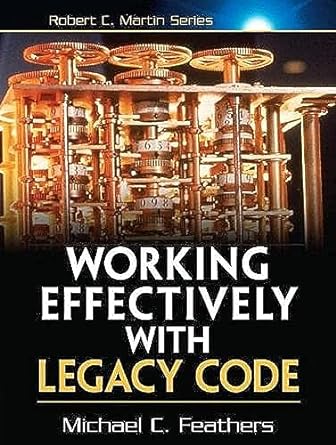
Working Effectively with Legacy Code
This book provides programmers with the ability to cost effectively handlecommon legacy code problems without having to go through the hugelyexpensive task of rewriting all existing code.
6. Domain Driven Design
"Domain Driven Design" by Eric Evans is a seminal work in software engineering that focuses on aligning software systems with the real-world domains they serve. It introduces principles and practices for building complex applications centered around clearly understanding business domains. Evans emphasizes collaborative modeling, using a common language between domain experts and developers.
The book introduces concepts like bounded contexts, aggregates, and ubiquitous language, providing a blueprint for designing scalable, maintainable, and adaptable systems. By emphasizing the importance of domain expertise and effective communication, "Domain Driven Design" empowers teams to create software that accurately reflects the complexities and requirements of their specific domains.
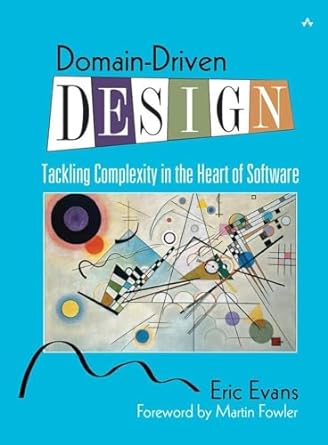
Domain-Driven Design: Tackling Complexity in the Heart of Software
"Domain Driven Design" (DDD) is a paradigm-shifting approach that places the core business logic and understanding of a domain at the forefront of software development.
7. Head-first design patterns
"Head First Design Patterns" by Elisabeth Freeman, Bert Bates, Kathy Sierra, and Eric Freeman is an innovative guide to mastering software design patterns. Using a unique and engaging approach, this book employs visual aids, puzzles, and real-world examples to teach complex concepts. It covers essential design patterns like Singleton, Observer, Factory, and more.
Focusing on practical application and problem-solving helps readers understand when and how to apply these patterns effectively. With its interactive style and memorable content, "Head First Design Patterns" makes learning design patterns enjoyable and deeply insightful, making it a valuable resource for developers of all levels.
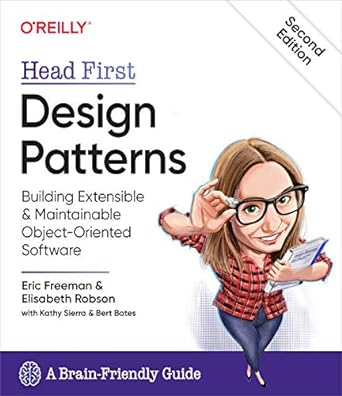
Head First Design Patterns: Building Extensible and Maintainable Object-Oriented Software
With Head First Design Patterns, 2E you'll learn design principles and patterns in a way that won't put you to sleep, so you can get out there to solve software design problems and speak the language of patterns with others on your team.
8. Code Complete: A Practical Handbook of Software Construction
This book is a definitive guide in software engineering. This comprehensive book delves into every phase of the software development process, offering practical techniques and best practices for writing high-quality code. McConnell covers topics like code organization, naming conventions, debugging, and testing, emphasizing a systematic and disciplined approach.
With a wealth of real-world examples and case studies, the book equips developers with the tools and knowledge needed to produce reliable, maintainable, and efficient software. It's an indispensable resource for programmers looking to elevate their skills and produce software that stands the test of time.
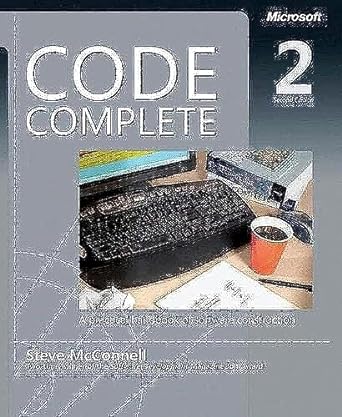
Code Complete: A Practical Handbook of Software Construction
This classic book has been fully updated and revised with leading-edge practices—and hundreds of new code samples—illustrating the art and science of software construction.
9. Design Patterns: Elements of Reusable Object-Oriented Software
"Design Patterns: Elements of Reusable Object-Oriented Software" by Erich Gamma, Richard Helm, Ralph Johnson, and John Vlissides (often referred to as the "Gang of Four" or GoF) is a seminal work in the field of software design. This classic book identifies and documents 23 fundamental design patterns used in object-oriented programming. It offers developers a common language and toolkit to effectively solve recurring software design problems.
With detailed explanations, UML diagrams, and code examples in C++, Smalltalk, and other languages, it provides valuable insights into creating flexible, maintainable, and robust software systems. This book remains a timeless reference for software architects and developers striving for elegant, reusable solutions.
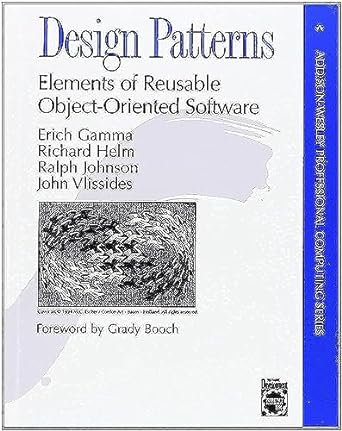
Design Patterns: Elements of Reusable Object-Oriented Software
The authors begin by describing what patterns are and how they can help you design object-oriented software. They then go on to systematically name, explain, evaluate, and catalog recurring designs in object-oriented systems.
10. Cracking the Coding Interview: 189 Programming Questions and Solutions
"Cracking the Coding Interview" by Gayle Laakmann McDowell is an essential resource for aspiring software engineers preparing for technical interviews. It presents a comprehensive collection of 189 coding questions, including data structures, algorithms, system design, etc. Each question is accompanied by detailed explanations and efficient solutions, aiding in understanding core concepts.
McDowell offers advice on interview strategies, resume writing, and behavioral questions. This book equips readers with the skills and confidence needed to excel in competitive tech interviews, making it a must-have for anyone aspiring to land a job in top tech companies.
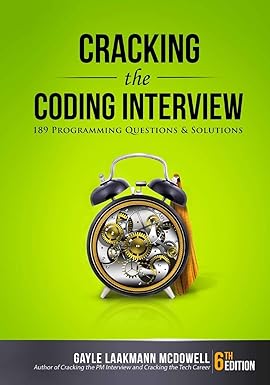
Cracking the Coding Interview: 189 Programming Questions and Solutions
Cracking the Coding Interview, 6th Edition is here to help you through this process, teaching you what you need to know and enabling you to perform at your very best. I've coached and interviewed hundreds of software engineers. The result is this book.
Gopi Gorantala Newsletter
Join the newsletter to receive the latest updates in your inbox.
